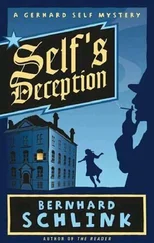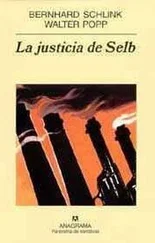He was still holding the folder with the material for the press. I must find that reporter, he told himself. Then he, the CIA, or the FBI will take charge. But what can they do? What will happen if Bulnakov and his people go underground, disappear, cover their tracks, or if the material I’ve gathered isn’t substantial enough? Then at least I can pack my things in peace and fly back home. Home?
But there would be time enough to think about all that later. Now he had to see how he would get through the rest of the day and the night. He knew that Larry was planning to go to Long Island to see a literary critic, and that he was thinking of spending the night there. Her name was Mary. Larry said she was a beautiful woman, this literary critic, or critical literate, or literally critical. Larry had mentioned her full name, but Georg couldn’t remember it, so wouldn’t be able to reach him there. He looked at his watch. It wasn’t even noon yet.
He carefully climbed down the fire escape, trying not to make any noise or startle housewives at their kitchen windows. On the third floor, the window and the window guard were open. The kitchen was empty, there were no pots on the stove, no dishes in the sink, no open box of cornflakes or newspaper lying on the table. He climbed through the window and walked through the rooms. The blinds were down, their slats throwing light and shade onto the freshly painted walls and polished floors. The apartment was waiting to be lived in again. Georg carefully put the chain on the door. He wanted to hear in time if the super or the new tenants showed up. He lay down on the floor near the front door.
WHEN HE WOKE up it was dark outside. His body was aching from the hard floor. He got up, walked around the apartment, and looked outside. He gazed into lit windows. The streetlights were on, and 115th Street was quiet. On Broadway, the headlights of cars flitted past. It was eleven o’clock. He had slept deeply. He was hungry.
He couldn’t think clearly yet. He climbed down the fire escape to the courtyard, reached the cellar, stole past the laundry room and the super’s office, and found the door from which steps led up to the sidewalk by the main entrance. Only after he had pulled the door shut behind him did he realize that he wouldn’t be able to get back in again, and that he should have tried to return to Larry’s apartment. Spending the night on an empty stomach in an empty apartment was still better than spending it… spending it where? He had no idea where to go.
He waited a long time to make sure that nobody suspicious was standing in one of the doorways, under an awning, or behind a parked car. He didn’t see anyone. He decided not to go down Broadway, but went to Riverside Drive and walked in the shadow of the park to where it ended at Seventy-second Street. He crossed West End Avenue and Broadway, and went into an Italian restaurant on Columbus. It was expensive, but the service was fast and the pasta was good. Georg had washed his face in the men’s room, combed his hair, and been pleased with what he saw in the mirror. He enjoyed his meal. He had survived. After a whole bottle of Cabernet Sauvignon, he was convinced he had won. He chuckled at the thought of those two bastards from Bulnakov’s office, the splintering wood, the shout from the elevator shaft, and the man who tripped over the bucket of paint and fell down the stairs. I did all that, he thought triumphantly. Too bad I couldn’t stop and watch. The two of them must really have been a sight.
He spent the night on a park bench, his head resting on the folder for the reporter. Other people lay on park benches too. He didn’t stand out in his sneakers, jeans, polo shirt, and his old blue jacket. He woke up from time to time, heard dogs barking, drunks quarreling, a siren howling. He turned over and fell asleep again. In the morning there was a slight chill in the air, and he curled up. At six o’clock he went to a diner and had some eggs and bacon with home fries, toast and jelly, and coffee. His head was heavy from the wine. He was sure he could reach Larry later in the morning. He rehearsed mentally what he would tell the reporter, how he would show him the plans and photos, how he would explain it all. He found a copy of the Times next to him on the counter, abandoned by its owner, and read about Afghanistan and Nicaragua, a promising Democratic presidential candidate, and the trade deficit.
In the Metro section he read: “Two officers were injured yesterday while attempting to arrest and deport an illegal alien. One officer is still at the FDR Hospital, the other was released after treatment of minor injuries. The foreigner, a German by the name of Georg Polger, is now a fugitive. Anyone with information…”
At first Georg’s mind was a blank. Then the same thoughts kept recurring: This doesn’t make sense, it doesn’t make sense at all. The Russians might have some plants in the French secret service, but surely not in the American one. And even if they did have plants here, then surely not to the extent that they could send officers out after him.
Georg went through what he knew one step at a time, as he had arranged the information for the reporter. A European consortium-Britain, Germany, Italy, and France-come together to develop a new attack helicopter. Is that clear enough so far? Yes. They achieve a technological breakthrough. It’s not about a faster helicopter with stronger armor and higher payload: it’s about a war machine that can annihilate all other weapon systems. Consequently, the helicopter is scheduled for adoption not only by the four European countries that created it but by all the NATO countries, including the United States. That’s clear enough too. It is also clear that the Russians are interested in getting in on the act. They contacted him in the guise of the translation agency and saw to it that he became the head of a translation agency that worked almost exclusively for Mermoz, and then got at the plans through him . Still clear? Yes, still clear.
But Georg had difficulty piecing together how the story went on. He remembered Helen’s asking why the Russians or the Poles would want to destroy his life in Cucuron, and how they had managed it. He, and Helen too, had taken it for granted that they would want to sideline him as a source, to make him untrustworthy, and that consequently they had given the French damning evidence implicating him. But why did they bother with that when they could simply retreat behind the iron curtain, which was still ironclad enough to stop anyone from investigating further? Georg was aware, however, that the Russians found knowledge far more valuable when others didn’t know they had it. The question remained how they had compromised Georg with the French, and how they had made him seem untrustworthy, making his life in Cucuron miserable. There were endless possibilities. So far so good? Something was bothering Georg: he was no longer pleased with the way the story went on, but didn’t know what it was that was bothering him, or what other scenarios might be possible.
Now to New York and Townsend Enterprises. To sum up, he had hit upon the idea of New York because of the poster in Françoise’s room, he had looked for her here, and had made certain people nervous. Then he was shadowed, and had shadowed the redhead, and had found Townsend Enterprises. So much was clear, because that is what had actually happened. The rest was unclear: why would the KGB send people from New York, of all places, to Provence? In the case of Bulnakov, that might still make sense. Georg thought of Philip Habib who had been sent by the Americans on difficult missions throughout the world, and of Hans-Jürgen Wischnewski who had been sent out by the Germans. But to send Françoise on an international mission? The KGB had agents in New York. Their front is disguised as an enterprise specializing in rare woods and precious metals. Why woods and metals of all things? Enough’s enough, Georg told himself, who cares whether they deal in woods, metals, flowers, or books? Bulnakov, the chief agent, is sent on a particularly important mission to France because he is a very experienced agent. He takes Françoise, a fellow agent, with him because she is his mistress. Can one KGB agent be the lover of another? Georg sighed. Whether or not the KGB allowed its agents to climb into bed with one another, it would not have officers of the CIA, the FBI, or the New York Police Department working for it.
Читать дальше












